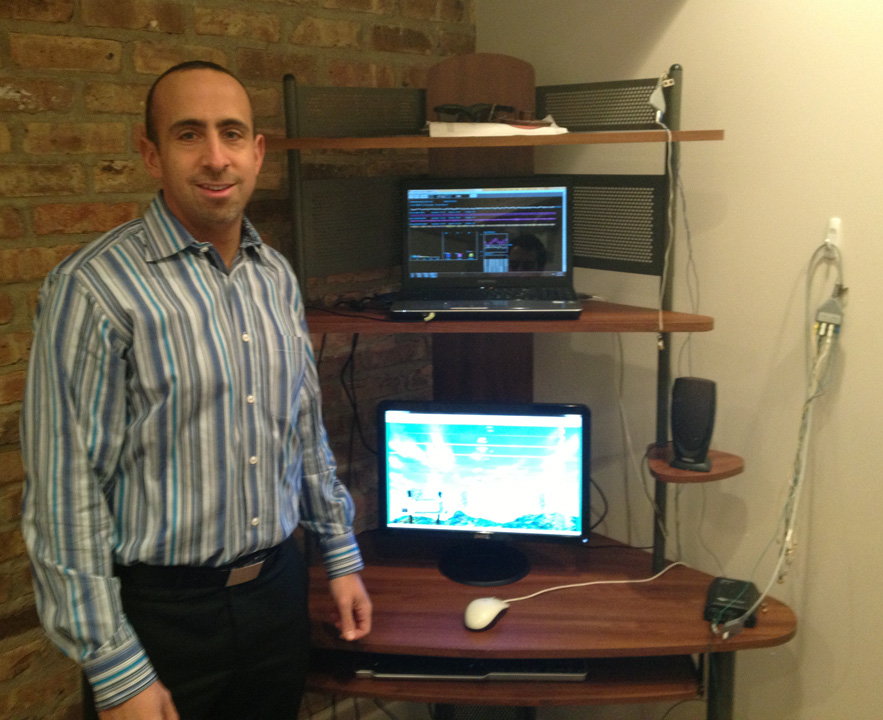The quickly moving field of neurofeedback is gaining a foothold in Chicago, and at Cognitive Solutions learning center in DePaul patients are using the emerging treatment to help with everything from learning disorders, anxiety, depression, and even self improvement.
 In essence, neurofeedback treatment works to train the brain into operating on certain, beneficial brainwaves specific to the patient’s condition. A patient with ADHD, for instance, produces an excess of waves in the theta frequency and will work to decrease that by focusing on other brainwave frequencies. Patients are able to do this through a series of neurofeedback sessions, where they are hooked up to a monitor through noninvasive electrodes and can watch their brainwave frequencies in real time. Feedback is either given through an audible beep or a a variety of games that progress as the patient produces the target brainwave frequency.
In essence, neurofeedback treatment works to train the brain into operating on certain, beneficial brainwaves specific to the patient’s condition. A patient with ADHD, for instance, produces an excess of waves in the theta frequency and will work to decrease that by focusing on other brainwave frequencies. Patients are able to do this through a series of neurofeedback sessions, where they are hooked up to a monitor through noninvasive electrodes and can watch their brainwave frequencies in real time. Feedback is either given through an audible beep or a a variety of games that progress as the patient produces the target brainwave frequency.
“One of the most important things to understand is that you’re not taking something away, brain-wise, but you’re helping people switch gears,” said Dr. Sam Effarah, who runs the Chicago learning center alongside Dr. Ari Goldstein. “At its most basic it’s operant conditioning. The visual or audible feedback tells the brain, ‘Hey, you’re doing the right thing, let’s do that again.’”
Before any of the neurofeedback sessions can begin, a patient must undergo an evaluation in which a highly individualized profile is established. According Effarah, Cognitive Solutions generates over 200 pages of info on each patient, featuring topographical and deep structure maps of the brain that allow the doctors to hone in on the issue and come up with an appropriate treatment plan.
Cognitive Solutions has a range of patients with different conditions come in from across the globe. One patient suffering from Autism flies in twice a year from Greece, and thanks to neurofeedback treatment no longer meets the criteria for being on the autistic spectrum. After multiple surgeries and doctor evaluations failed to help, another patient was able to correct Halo vision in their left eye in as few as five session of neurofeedback treatment.
According to Effarah, many patients come in simply looking to improve their efficiency and concentration at work, and even more continue with the treatment after they’ve had help with their original condition. “One misconception with neurofeedback is that there has to be something wrong to pursue it,” said Effarah. “You’re basically just putting your brain into a more optimal state and strengthening connections in the brain.”
As an all-encompassing learning center, Cognitive Soltuions offers more services in addition to its neurofeedback program. Patients can do talk therapy and receive tutoring to supplement their sessions. Neurofeedback programs generally last around a half hour, and patients can undergo 20-40 sessions.
“If you do enough the results will continue, it’s almost like riding a bike,” Effarah said. “Though some people do have other things that happen in their life that will cause them to need to come in for a tuneup.”
To find out more about neurofeedback treatment and the options offered by the Cognitive Solutions Learning Center, visit HelpForLD.com.









